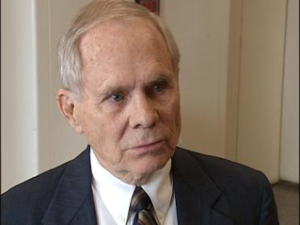
On March 23,2017, the State Senate passed a joint resolution that seeks to amend the Oklahoma Constitution with language requiring “proof identity” in order to vote. It does not need the Governor’s approval.

The joint resolution, approved by both the House of Representatives and the Senate, will ask the people of Oklahoma, at the next election cycle, to elevate the language of the statute, enacted in 2010, and insert it in the State constitution.
The existing law requires voters to show a voter ID card or a photo ID issued by the U.S. government, the Oklahoma State government or an Oklahoma tribal government. About 74 percent of voters approved the voter ID State question.
In 2012, Tulsa Attorney James C. Thomas first filed a legal challenge to the voter ID requirement alleging it was unconstitutional.

Last August, Oklahoma County District Judge Aletia Haynes Timmons dismissed the challenge holding the voter ID requirement was constitutional and Gentges had no legal right to complain.
Thomas appealed the ruling and the Oklahoma Supreme Court reversed Judge Timmons, holding Gentges did have the right to challenge the voter ID law and sent it back to Timmons for trial.
Sen. Anthony Sykes, R-Moore, who is sponsoring the Constitutional amendment, noted that the threat of legal challenge, such as Gentges, is one of the reasons the constitutional requirement is needed.

“This would say the will of the people can’t be overturned,” he said. “This just reinforces and reflects the will of the people.”
Thomas said he is confident the State’s high court will ultimately agree with him that the voter ID requirement has kept thousands from exercising their constitutional right to vote.
But he said adding the constitutional amendment would undermine his current legal strategy since it is largely based around his argument that the voter ID law runs counter to the current language in the Constitution.
“It would be a travesty,” he said. “I would still challenge the provision, but I would have to find a new theory (to base the challenge on).”
According to the National Conference of State Legislatures, 33 states have laws requesting or requiring voters to show some form of identification at the polls. Alleged voter fraud is the reason voting rights are under attack nationwide as states pass voter suppression laws.
But contrary to every academic and journalistic investigation voter fraud at the polls is exceedingly rare.
The right to vote is fundamental to our democracy — but it’s in danger.
These laws lead to significant burdens for eligible voters trying to exercise their most fundamental constitutional right. Since 2008, states across the country have passed measures to make it harder for Americans—particularly black people, the elderly, students, and people with disabilities—to exercise their fundamental right to cast a ballot. These measures include cuts to early voting, voter ID laws, and purges of voter rolls.
In 2013, the Supreme Court gutted the Voting Rights Act, the crown jewel of all civil rights legislation. Saying that harsh structural racism was largely a thing of the past, Chief Justice John Roberts wrote that states with long histories of voting discrimination no longer needed to seek the approval of the federal Justice Department before changing their voting rules to guard against discrimination.
Notwithstanding the decision by the Supreme Court, the federal lower courts have recently overturned or partially overturned. voter ID laws in Wisconsin, Texas and North Carolina. The recent appointment of Justice Neil Gorsuch may turn the tide reinvigorating the Voting Rights Act of 1965 meant to protect voters.
The fate of the voter ID law having been held by Judge Timmons to be constitutional, we trust that the Oklahoma Supreme Court will strike the law down and not wait for the U.S. Supreme Court to do it.










